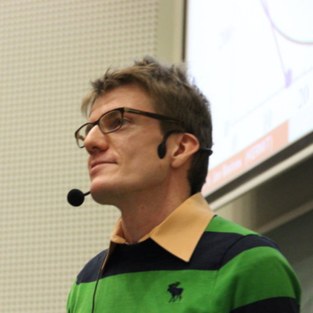Mathematics in a changing world – Jan M. Baetens
By 2050 we will be able to simulate life as is using dedicated mathematical models. Ever since the development of modern science, there have been only two possible ways to conduct experiments: processes were either observed in situ, or they were replicated in a controlled environment (in vitro). Yet, the availability of modern computers and the ever increasing computing power has turned this around. Indeed, we are now able to conduct large numbers of realistic experiments on computers (in silico) by relying on mathematical models of the studied processes. In this way, it has become possible to conduct experiments that cannot be conducted in vitro, consider numerous scenarios, account for the natural variability in the living world or do accurate forecasts. Moreover, in silico studies can be used to identify the scenarios that are worthwhile to explore in vitro of in situ.
Given the forecasted further increase of computing power over the next decades, the consequent decrease of the cost of one computing second and the ever increasing understanding of biological and natural processes, it goes without saying that the field of bioscience engineering will be pervaded even more by mathematical models and in silico based research by 2050. By then we will be able to simulate the dynamics of the individual organisms in a population separately and draw conclusions from that, rather than by tracking a population’s macroscopic quantities (biomass, volume,…). Besides, we may anticipate that mathematical models will be used increasingly by alumni of and researchers at the FBE to optimize natural and biological processes and support management decisions.
This evolution of course entails quite some challenges such us coupling models that describe processes at different scales (molecular, cellular, population), finding workarounds for the current shortcomings at the level of soft- and hardware and the development of the mathematics that is needed to conduct simulations with complex mathematical models at individual level in an efficient and effective way. It are those challenges that our alumni and FBE researchers will have to face, but especially their multidisciplinarity makes them apt for this job.

